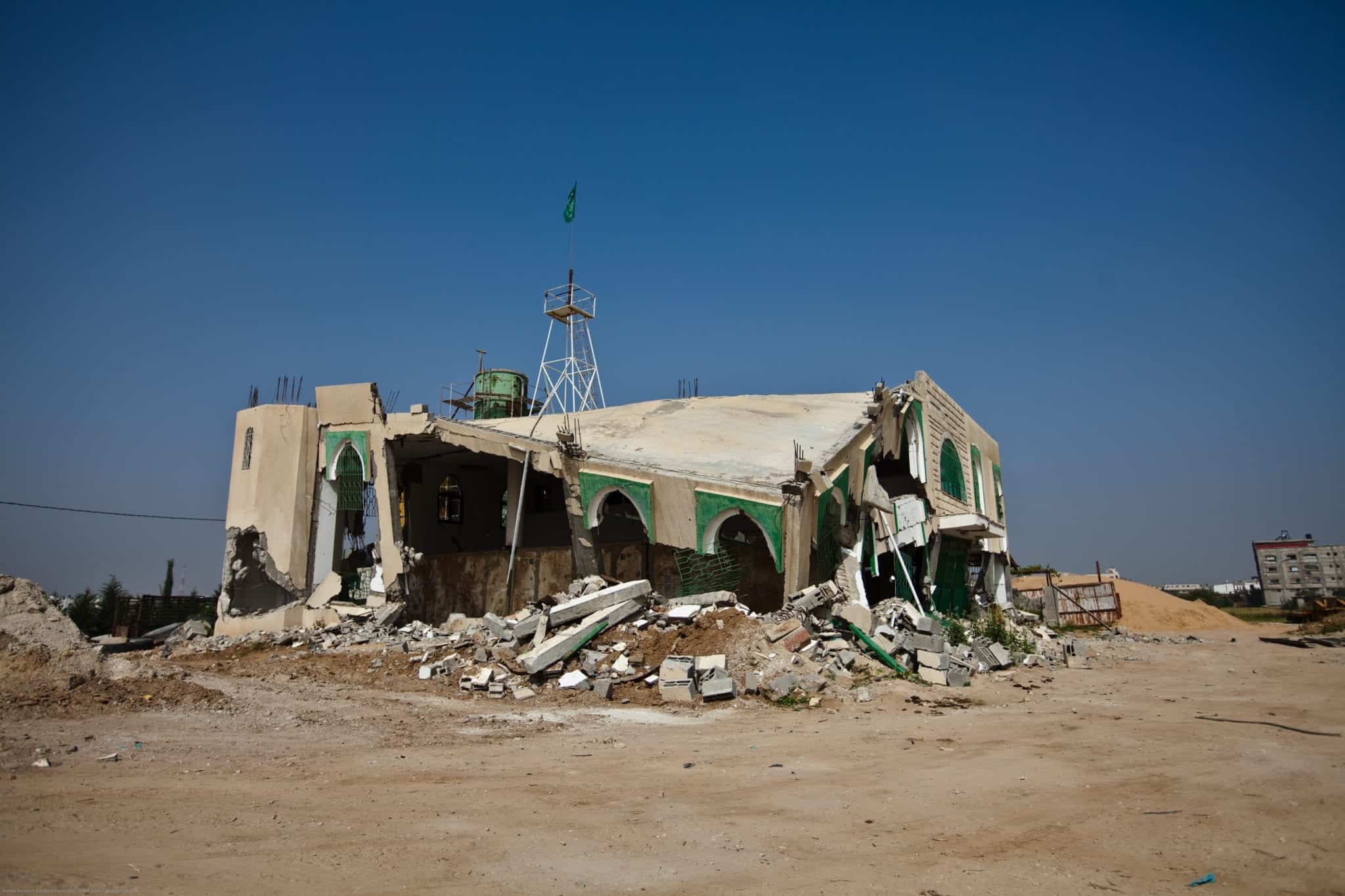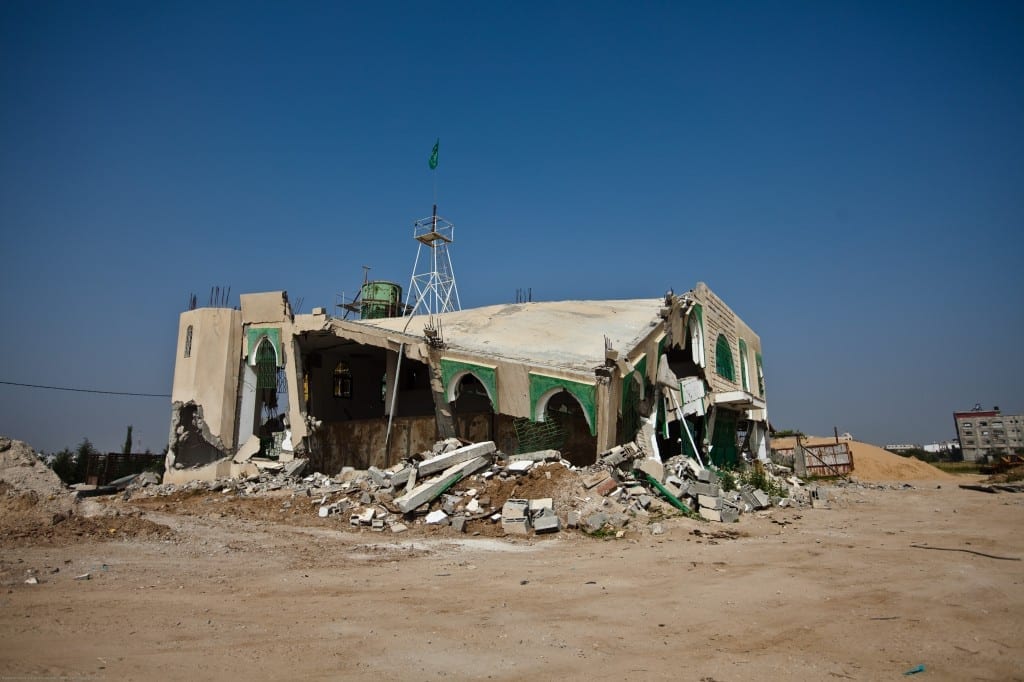A blatant disregard of ethics

The U of R seeks a controversial academic partnership
Article: Eman Bare – News Writer
The University of Regina Faculty of Business Administration is considering a controversial partnership in the Middle East with Hebrew University, as well as several other Israeli institutions. Although finalizations of any partnerships have yet to be made, many professors at the university are raising concerns with the ethics behind partnering with a country that is accused of violating several international laws, including illegally occupying Palestinian land.
The proposed partnership with Hebrew University, specifically its policing and homeland security studies program, could be part of an MBA in public safety management developed for police service professionals here in Saskatchewan. The Department of Justice Studies is part of the discussions to establish the MBA.
A letter written by professors at the university reads that an academic exchange with Israel would legitimize the continued occupation and colonization of Palestine. Additionally, they also stated that the U of R, “should not be collaborating directly or indirectly with the Israeli security apparatus.”
The partnership was initially brought up during a business faculty meeting in the winter semester of 2013. In addition to Hebrew University, possibilities of partnering with a number of institutions in Saudi Arabia, China and Hong Kong were also discussed.
This past academic year, Andrew Gaudes, the Dean of Business travelled to the Middle East, where he visited with academics in various Israeli universities including Hebrew University, Recantai Graduate School, University of Haifa, Ben Guiron and Achava Academic College.
The partnership with Hebrew University raised the most concerns because of the universities alarming affiliation with the Israeli security establishment, including Shin Bet and the Israeli Defense Force (IDF). Classes offered at the university include policing terrorism, political violence and protesting violence, minorities and law enforcement terrorism and crime and terror and society. Additionally, the university also conducts workshops and training programs for police and homeland security executives.
One of the biggest concerns in partnering with a school that works with the IDF, is that they have been accused of several crimes including the torture of Palestinians, imprisoning civilians – including children – without a fair trial, as well as willfully causing great suffering to a specific ethnic group. The Israeli peace group B’Tselem even published a report in 2013 criticizing the use of crowd control weapons in the West Bank.
Dean Gaudes insists that although these classes are offered at Hebrew University, they would not necessarily be the courses that University of Regina students take.
However, the question remains, why is the University of Regina considering a partnership that so much of the world, and even its faculty members oppose?
In protest to these crimes against humanity, many organizations including the European Union, Teachers Union of Ireland, and American Studies Association have agreed to an academic boycott of Israel, as well as a boycott of any company that is built on illegally occupied Palestinian territory.
Gaudes insists that this partnership is staying out of politics, and is based solely on the intention of furthering academic interests.
“We get a lot about the national narrative, we hear a lot from our politicians and other politicians about what is going on. Very seldom do we ever hear from the personal narrative. What’s happening on the ground level? What we really want to look at doing for the MBA and public safety program is developing leaders who understand the technical aspect of public safety. We see this as a great moment for the students to explore and observe and to synthesize on their own, not to be spoon fed, what does this [mean to] someone else, but to observe and synthesize,” states Gaudes.
The question remains, what does a university have to learn from such an institution? Some U of R faculty members are entirely unsure.
Andrew Stevens, a business professor at the university says, “At this point, it’s not really clear exactly what Hebrew University is going to offer us, other than the possibility of curriculum in the broad area of policing and public safety.” Stevens added that the faculty currently has a number of international partnerships in Europe and Asia.
In 2012, Dr. Vianne Timmons went to Israel along with several other Canadian university delegates to explore potential academic opportunities in the state of Israel.
In an interview with Canadian Jewish (CJ) News, Timmons was quoted stating that, “for the University of Regina, there is interest in the area of justice and police studies. There is much we can learn from the work undertaken by [Israeli] academics. Israel is a leader in innovation, and Saskatchewan has identified innovation as a priority. We can learn from the investments made in this area. I was impressed with the work being undertaken in academia in Israel.”
However, when interviewed in regard to the public safety program, Hirsch Greenberg, the Head of Justice Studies, states that, “I was invited to a meeting with the business people, where I very clearly said at the core of our program is social justice. That we don’t teach how to fire guns, how to handcuff people, surveillance, how to spy on people. That is not what we do here.” There is no indication that justice studies is working to establish partnerships in Israel.
It is unclear what Timmons meant when she said there was an interest in justice studies.
When approached for an interview, Timmons stated, “I have no direct role in this partnership,” and suggested that Dean Gaudes be contacted instead.
However, when the Regina Public Interest Research and Independent Jewish Voices of Canada wrote her a letter stating their disapproval of the partnership, she wrote a letter that stated that, “It is important to note that the faculty of business administration has no plans for a joint MBA degree with Hebrew University, or any other institution for that matter.”
But the next paragraph in the letter says, “You will be interested to know that the Faculty is exploring a study tour that may entail University of Regina students being in Ramallah for one week and in Jerusalem for a second week. Students would participate in sessions led by faculty members of a Palestinian university and faculty of an Israeli university, and gain perspectives from public and private organizations with a presence in both regions.”
It is unclear what Timmons meant when she stated that the faculty of business administration has no plans for a joint MBA degree program with Hebrew University.
Dean Gaudes himself says, “It’s also important for a university to have connections beyond our campus. We look at exploring other opportunities that satisfy the MBA in public safety and one of them is exploring the possibility of relationships within the area of Israel.”
Additionally, the proposed partnerships between the business faculty and Hebrew University, and other Israeli institutions have been discussed with faculty members as early as February, 2013.
In November, Dean Gaudes met with faculty to discuss the concerns raised about the various partnerships in Israel, specifically the connection at Hebrew University. The Dean left for Israel later that week.
According to minutes from a December faculty council meeting, Dean Gaudes and the associate dean of graduate programs met with representatives from several Israeli universities earlier that year, including a representative from Hebrew University.
These minutes also state that after meeting with a UN representative [Haya Abu-Saleh], “ she offered to support it [the programs] by providing an office-based humanitarian briefing to students by the OCHA [a UN branch]. The briefing would be on the general humanitarian situation in the West Bank, including east Jerusalem, and the Gaza strip.”
However, although drawing attention to the humanitarian crisis in Gaza seems like a balanced approach when in the Middle East, there is still the concern professors have raised about this justifying the colonization of Palestinian land.
When asked about the fact that Hebrew University was on illegally occupied territories, Dean Gaudes states, “If I start responding to a question like that, I get into something that is beyond the academic inquiry. It is taken into consideration, but my understanding is different on that. I do believe that since about 1945 Hebrew University’s location is within territory that has been recognized as part of Israel.”
However, the US Campaign for the Academic Boycott of Israel argues, in a letter titled Open Letter to Boycott Hebrew University,
“The Hebrew University of Jerusalem is complicit in the unilateral annexation by Israel of occupied East Jerusalem, the arbitrary application of Israeli domestic law to the oPts, and discrimination against Palestinian citizens of Israel—all illegal acts under international law. On September 1, 1968, nearly one year after Israel militarily occupied East Jerusalem and the West Bank, Israeli authorities confiscated 3,345 dunums of Palestinian land in East Jerusalem, which was designated, occupied territory under international law. [1] Avraham Harman, President of the Hebrew University from 1968-1983, used this confiscated land to expand the university’s Mount Scopus campus. By relocating Israeli staff and students to work and live on occupied Palestinian land, Hebrew University directly contravened the Fourth Geneva Convention.”
Although the original infrastructure of Hebrew University may have been on land legally given to Israel, the university has expanded on land that is illegally occupied by Israel under the Fourth Geneva Convention.
[pullquote]There is reason to believe that a partnership with Hebrew University, especially in the area of public safety and policing, could do damage to our reputation.”[/pullquote]
As Stevens said, “I think any partnership established by the University of Regina should take into consideration the question of academic interests as well as ethics, and how the connection will reflect on individual faculty members and the institution as a whole. Institutional partnerships are deeply political. There is reason to believe that a partnership with Hebrew University, especially in the area of public safety and policing, could do damage to our reputation.”
The questions remains, why is this partnership being considered since there is such wide opposition to it, both from within the university, from the Regina community, and from organizations across Canada?
“Internationally”, Stevens continued, “there is a growing movement amongst scholarly associations and within academic institutions and civil society organizations to consider the human rights question when partnering with companies and post-secondary institutions in Israel, specifically those that do business in the occupied territories.”
Dean Gaudes, however, against states that as an academic institution, the importance is focusing on academics alone.
“Everyone has personal beliefs, personal ideas and that is part of who we are. When I do hear expressed concern, I do acknowledge it and it does become part of the dialogue and internal consideration. I am also very mindful of the fact that the moment we start moving beyond an academic inquiry, we open up a whole different area in any relationship we decide to explore. If we look at Israel, I would be naive to think that there are not issues and there are not concerns on both sides. I know they are there, and I know they carry a lot of emotions and strong feelings. I also know full well that any place we go, if we want to explore any kind of relationship in anywhere we go, including Canada and abroad we can probably, if we extend the reach far enough, we will find reason to have reservation beyond the scope of the academic inquiry. So, having said that, I work with maintaining the focus and the scope of this exercise in looking at which courses and which schools are the most appropriate to the level of the academic inquiry.”
However, this still does not explain why so many academics, including Stephen Hawking himself have pushed for an academic boycott of Israel because of it’s continuous violation of human rights and international law.
Although Gaudes insists that creating relationships with schools in the Middle East is purely academic, with the recent speeches given by Stephen Harper in the Israeli Knesset, and Canada’s unwavering support of Israel, one starts to question whether or not politics does play a role.
Earlier this month, the Canadian Prime Minister, along with an entourage of 200+ people visited the Middle East, in the prime minister’s first official visit.
Among his party were university delegates from campuses across Canada.
It seems coincidental that now more than ever there is a strong push for Canadian universities to strengthen academic ties with Israel.
Already this month, Dalhousie University signed a partnership with Ben-Gurion University in Israel. Ben-Gurion is one of the universities that the University of Regina is considering as well.
This potential academic partnership with Israeli universities remains both unclear and undesired by many faculty members. What seems evident, however, is that Canada is currently moving against the international world in strengthening ties with Israel, even parts of Israel that are illegal under international law.
[button style=”e.g. solid, border” size=”e.g. small, medium, big” link=”” target=””]Images: Justin McIntosh , Marius Arnesen[/button]












You just don’t get good journalism like this in Canada anymore.
[…] Click here for the original story from the Carillon […]
[…] An article in the student newspaper The Carillon in late January alerted students to the proposed collaboration. […]
[…] article in the student newspaper The Carillon in late January alerted students to the proposed […]
[…] The Carillon, in January, broke the story about this potential partnership with HU. Read our initial story here. […]
[…] For the initial story that the Carillon broke, click here. […]
[…] For the initial story that the Carillon broke, click here. […]
[…] For the original story the Carillon broke, click here. […]